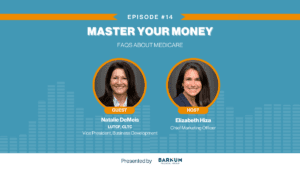
Medicare is a health insurance program of the United States government that subsidizes healthcare services. People of retirement age (65 and up), younger people who meet certain health criteria, and those with particular conditions are all eligible for the program. It’s segmented into other programs that protect a wide range of medical expenses, some of which are paid for by the insured. Here is everything you need to know about Medicare.
What Is Medicare?
Established in 1965, Medicare is one of the longest-running social insurance programs in the world. The foundations for what we now call “Original Medicare” were laid around this time. Seven years later, the program was first significantly expanded to include those with disabilities or end-stage renal diseases. The foundational elements of Medicare encompass both government-sponsored and privately funded insurance options.
Why Do We Need Medicare?
Many elderly people rely on Medicare as their primary health insurance. The program ensures that retirees in the United States can continue to receive the medical care they need after leaving the labor field. However, Medicare is helpful to everyone. It relieves the burden on younger generations by assisting the elderly in maintaining their health and independence.
Assures cost-effective healthcare coverage. Medicare provides for people who cannot afford health insurance. The program provides access to some level of health coverage. In addition, it provides recipients with protection against the ever-increasing expenses of medical treatments.
Covers a wide variety of medical care options. Medicare offers free preventative treatments and screenings. Medicare Part B gives a free yearly wellness check-up and periodic tests. Part D helps pay for expensive prescriptions. The program also offers hospice care for the terminally sick, usually within the household.
May pave the path for improved healthcare for everybody. Medicare is working for improved healthcare delivery with measures to enhance quality and collaboration. The program also looks to minimize needless hospital readmission rates and reduce hospital-acquired infections. Additionally, healthcare providers are now compensated based on the quality of their services rather than the quantity provided.
Safeguards more than just the elderly. The program offers health care to 9.1 million people who live with a disability and who previously could not obtain private insurance. Additionally, those younger than 65 with end-stage renal disease (ESRD) or amyotrophic lateral sclerosis (ALS) may also qualify for Medicare.
Operates efficiently. In comparison to private insurance, Medicare has lower administrative costs and slower rates of increase in spending per person. Total Medicare expenditures climbed by fewer than 5% each year, down significantly from the previous decade’s annual pace of 9%.
Final Thoughts
One-third of seniors lived below the poverty line when Medicare was established in 1965. But in its first decade, the program helped reduce the elderly poverty rate by half in its first decade. Medicare is essential to the financial and health security of senior citizens in the United States because it provides financial assistance to cover the potentially crippling expenses of sickness.
If you’d like to learn more, Barnum’s Medicare Specialist Natalie DeMeis holds a free Medicare webinar the 2nd Tuesday of every month. Click to register for the date that works best for you.



